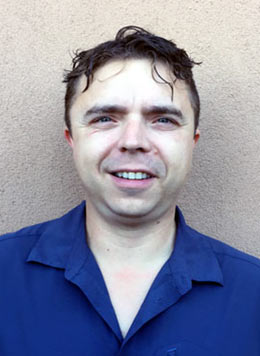Dr. Andriy Koval
Health System Impact Fellow Profile

- Name:
- Andriy Koval
- Host Partner Organization:
- BC Centre for Disease Control, Observatory for Population and Public Health
- Name of Host Partner Organization Supervisor:
- Kate Smolina
- Location (city, province):
- Vancouver, British Columbia
- Academic Institution:
- University of British Columbia
- Name of Academic Supervisor:
- Mark Tyndall
- Duration of Fellowship:
- 2 years
- Title of Fellowship / Program of Work:
- Improving surveillance of chronic MHSU conditions: Integrating clinical encounter with administrative/diagnostic data to derive and validate case definitions
- Contact Information:
- Website: github.com/andkov;
Social media page(s): Twitter: @andkovpro
Post-HSI Fellowship Career Profile
Biography
I am a data scientist with background in quantitative methods and interest in data-driven models of human aging.
I received my Ph.D. in Quantitative Methods in 2014 from Vanderbilt University, where I focused on longitudinal modeling, statistical graphing, and reproducible research. In August of 2014 I joined the Integrative Analysis of Longitudinal Studies of Aging (IALSA) network at the University of Victoria (UVic), where I developed reproducible tools (R + GitHub) for implementing coordinated statistical analyses among multiple longitudinal studies of human aging.
Interest in data-driven narratives of human aging lead me explore the use of electronic health records (EHR) for research and improvement of patient care. At Applied Clinical Research Unit (ACRU) of Vancouver Island Health Authority (VIHA), I worked on rendering VIHA's EHR into analyzable form and creating opportunities for academic and clinical researchers to work with these data in responsible and reproducible way.
HSI Fellowship puts me in direct contact with subject experts on chronic disease monitoring in BC and, what is more importantly, opens up avenues to work with provincial health data.
Fellowship Program of Work
We would like to improve the way we count certain chronic conditions of British Columbians.
The BC Observatory for Population and Public Health, aims to develop an information system for conducting chronic disease monitoring in compliance with all BC privacy and legal requirements, while being able to generate meaningful surveillance information at any point in time.
While surveillance of chronic diseases is one of the Observatory’s key priorities, mental health and substance use (MHSU) has been an area of specific interest across a number of groups within BC. The program of work proposes to improve current surveillance of MHSU conditions by looking deeper into how patients use health service system. Currently, administrative data are used to calculate prevalence for a handful of MHSU conditions: selected mental illnesses and mood and anxiety disorders. However, many other conditions are hard to diagnose and to track. In coordination with provincial and regional partners, we will focus on the following disorder groupings: a) schizophrenia, b) major depression, c) anxiety, d) alcohol-related e) opioid-related, and f) cannabis-related disorders. We will 1) extract transaction data of using secondary and tertiary services from electronic health records (EHR) held at Vancouver Island Health Authority, 2) determine what patterns of service utilization can be used to describe chronic MHSU conditions, and then 3) organize results into a system of regular reports that could be used by patients, doctors, researchers, and surveillance agencies.
This research address the problem of incomplete and inaccurate case definitions and mixed case groupings for mental health and substance use disorders. Our practical goal is to improve the integrity and validity of case definitions for MHSU conditions and to build a robust system for surveillance and reporting. Our ultimate goal is to support the policy and practice of addressing MHSU problems by quantifying the burden of disease.
- Date modified: